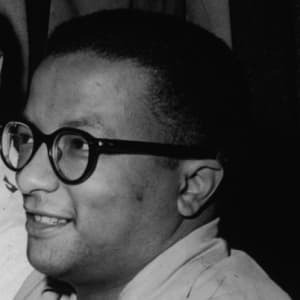
Paul Greengrass
Paul Greengrass is an English director known for box-office hits like the Bourne series and Captain Phillips.
Synopsis
Born in England in 1955, director Paul Greengrass is known primarily for his film adaptations of real-life events and his signature use of hand-held cameras. Greengrass's first major feature film, The Theory of Flight, starring Kenneth Branagh and Helena Bonham Carter, debuted in 1998. He went on to direct The Bourne Supremacy and The Bourne Ultimatum, both enormously successful big studio films starring Matt Damon, as well as 2006's United 93 and the 2013 box-office hit Captain Phillips.
Early Life and Career
Director and Writer Paul Greengrass was born on August 13, 1955, in Cheam, Surrey, England. A graduate of Cambridge University, Greengrass is known primarily for his film adaptations of real-life events and his signature use of handheld cameras.
A lover of filmmaking from a young age, Greengrass got his first taste of the director's chair in the 1980s while filming for the British current affairs program World in Action. He also served as a producer on the program. During his time with World, Greengrass made headlines as a co-author of the memoir Spycatcher (1987). The book focused on controversial revelations from Peter Wright, the former assistant director of MI5, Britain's equivalent of the FBI.
In the 1990s, Greengrass used his directorial and writing skills to create several realistic TV dramas. He explored the British side of Operation Desert Storm in The One That Got Away, which was based on a true story. He also wrote and directed the real-life sports tale The Fix and racial drama The Murder of Stephen Lawrence.
Leading Film Director
Moving away from the docudrama genre, in 1998 Greengrass released his first major feature film, The Theory of Flight, starring Kenneth Branagh and Helena Bonham Carter. While the movie proved to be a disappointment for him, Greengrass soon wowed critics and audiences alike with the powerful political work Bloody Sunday (2002). The film delved into the conflict in Northern Ireland via the 1972 killing of protestors by British forces. Bloody Sunday won numerous honors, including a Sundance Film Festival award.
Sunday garnered Greengrass a lot of attention and raised his profile in Hollywood. Before long, he was asked to direct a major action film, coming in to helm the second installment of the Jason Bourne spy saga, The Bourne Supremacy (2004). The film, starring Matt Damon, proved to be a success. Greengrass also directed the third installment The Bourne Ultimatum, which was released in 2007 and became an even bigger box-office draw.
'Bourne' Series and 'Captain Phillips'
In between his work on the Bourne films, Greengrass returned to his documentarian roots. He wrote and directed United 93 (2006), which was based on the September 11 hijacking of United Airlines Flight 93. The film won numerous honors, with Greengrass receiving an Academy Award nomination for his directing efforts. Reteaming with Matt Damon, Greengrass directed the Iraqi war drama Green Zone (2010). The film—a critical examination of the hunt for weapons of mass destruction—failed to live up to commercial expectations.
Yet Greengrass once again captured the hearts and minds of moviegoers with 2013's Captain Phillips. The movie is based on the 2009 hijacking of Maersk Alabama, a U.S.-flagged container ship, by Somali pirates. Tom Hanks stars as Captain Richard Phillips and acting newcomer Barkhad Abdi plays Muse, the lead Somali pirate. Both the cast and director earned raves for the riveting tale. Greengrass, Hanks and Abdi picked up Golden Globe nominations, with the film itself receiving an Academy Award nod for best picture.



